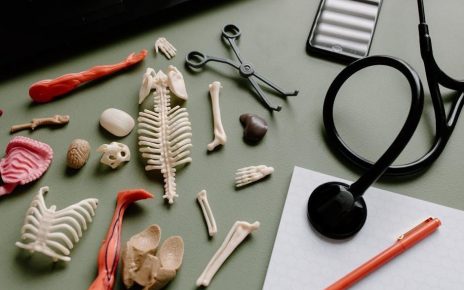Tennessee Walking Horse Rescue focuses on saving horses from neglect, abuse, and poor conditions, ensuring they receive proper care and rehabilitation for a second chance at life.
These gentle, smooth-gaited horses often face challenges due to exploitation in Big Lick practices, making rescue efforts crucial for their welfare and rehabilitation into loving homes and safe environments.
Understanding the Need for Rescue Efforts
Rescue efforts for Tennessee Walking Horses are crucial due to widespread abuse, neglect, and exploitation, particularly in Big Lick practices. Many horses suffer physical and emotional trauma, requiring urgent intervention. Additionally, horses retired from show careers often face uncertain futures. Rescue organizations play a vital role in rehabilitating these horses, providing necessary care and finding them safe, loving homes. The Tennessee Walking Horse Rescue page serves as a platform to highlight horses in need, ensuring they receive the attention and support required for a second chance at a happy life.
Breed Traits and Characteristics
Tennessee Walking Horses are known for their smooth gaits, calm disposition, and versatility, making them ideal for both trail riding and plantation work, beloved for their gentle nature.
Smooth Gaits and Comfortable Rides
The Tennessee Walking Horse is celebrated for its smooth, four-beat running-walk gait, offering riders unparalleled comfort and a natural, effortless riding experience. This unique gait allows the horse to cover ground efficiently while maintaining a calm and steady pace, making it ideal for long trail rides or leisurely outings. The breed’s ability to provide a comfortable ride is a hallmark of its popularity, catering to riders of all skill levels and ensuring a enjoyable experience for both horse and rider alike.
A Brief History of the Tennessee Walking Horse
Developed in the late 19th century, the Tennessee Walking Horse emerged as a versatile breed, cherished for its smooth gaits and gentle disposition, quickly becoming a favorite among many.
Origins and Development of the Breed
The Tennessee Walking Horse originated in the late 19th century in Middle Tennessee, developed by crossing breeds like Standardbreds, Morgans, and Narragansett Pacers. Known for its smooth gaits and calm temperament, the breed quickly gained popularity as a versatile workhorse and riding companion. Its unique running-walk gait provided unparalleled comfort and efficiency, making it a favorite among plantation owners and farmers. Originally bred for endurance and strength, the Tennessee Walking Horse became a symbol of reliability and gentle disposition, ideal for both labor and leisure.
The Issue of Big Lick Practices
Big Lick practices involve controversial training methods, often using soring to exaggerate the Tennessee Walking Horse’s gait, raising ethical concerns and sparking advocacy for humane treatment and reform.
Challenges in Rescue and Rehabilitation
Rescuing and rehabilitating Tennessee Walking Horses often involves overcoming severe physical and emotional trauma caused by neglect or exploitation in Big Lick practices. Many horses arrive malnourished, underweight, or with untreated health issues, requiring extensive veterinary care. Behavioral challenges, such as fear or aggression, must also be addressed through patient training and socialization. Additionally, finding qualified adopters who understand the breed’s specific needs can be difficult. Financial constraints and limited resources further complicate rescue efforts, emphasizing the importance of support from donors and volunteers to ensure these horses receive the care they deserve.
Rescue Efforts and Organizations
Organizations like Horse Plus Humane Society play a vital role in rescuing Tennessee Walking Horses, providing rehabilitation and rehoming services to ensure their well-being and safe futures.
Horse Plus Humane Society and Their Role
The Horse Plus Humane Society is a dedicated organization leading rescue efforts for Tennessee Walking Horses, focusing on rehabilitation and rehoming abused or neglected animals.
Founded by Tawnee Preisner, the society provides sanctuary, medical care, and training to horses in distress, ensuring their transition to safe, loving environments.
Through advocacy and education, they raise awareness about the plight of these horses, emphasizing the importance of ethical treatment and responsible ownership.
Success Stories from Rescue Missions
Jasper, a Tennessee Walking Horse, is a heartwarming example of rescue success. Once in distress, he now thrives on an Olympic Peninsula farm, enjoying a diverse herd and loving care.
Rescue missions like Jasper’s highlight the transformative power of rehabilitation and rehoming, offering horses a second chance at a joyful, healthy life with compassionate owners.
These stories inspire hope and demonstrate the impact of dedicated rescue organizations in saving lives and restoring trust in these magnificent animals.
Adoption Process and Rehoming
The adoption process involves matching horses with suitable homes, ensuring a smooth transition for both the horse and adopter through proper screening and support systems.
Rehoming focuses on placing horses in environments that prioritize their welfare, providing them with the care and love they deserve for a fulfilling life.
How to Adopt a Tennessee Walking Horse
To adopt a Tennessee Walking Horse, start by contacting a reputable rescue organization or humane society specializing in the breed. Review their adoption process, which typically includes an application form, home visit, and interview to ensure the best match for both the horse and adopter.
Once approved, you’ll be paired with a horse that fits your lifestyle and experience level. Post-adoption support is often provided to help with the transition, ensuring a smooth and successful rehoming experience for the horse.
Post-Adoption Care and Support
After adoption, providing proper care and support ensures your Tennessee Walking Horse thrives. This includes regular veterinary check-ups, balanced nutrition, and a safe living environment. Many rescue organizations offer post-adoption resources, such as training guidance and socialization tips, to help you and your horse build a strong bond. Regular grooming and mental stimulation are also essential for their well-being. With patience and dedication, your horse will transition smoothly into its new life, becoming a loving and loyal companion.
Rehabilitation and Recovery
Rehabilitation focuses on restoring the horse’s physical and emotional health through proper care, nutrition, and deworming, ensuring a full recovery and improved well-being over time.
Nutrition and Health Rehabilitation
Nutrition plays a vital role in the rehabilitation of rescued Tennessee Walking Horses. Proper feeding plans, including high-quality hay, grains, and supplements, help restore their physical health. Regular veterinary check-ups ensure any medical issues are addressed promptly. Dental care and deworming are critical for improving digestion and overall well-being. A balanced diet tailored to the horse’s age and condition is essential for recovery. With time, patience, and proper care, these horses can regain their strength and thrive once again.
Training and Socialization Techniques
Training and socialization are key to helping rescued Tennessee Walking Horses regain trust and confidence. Positive reinforcement techniques, such as reward-based training, are used to rebuild their emotional and behavioral foundation. Desensitization to new environments, people, and objects is crucial. Socialization involves introducing them to other horses, animals, and handling practices to foster calm and cooperative behavior. Patience and consistency are essential, as many rescued horses may have experienced trauma. Proper training helps them become well-adjusted companions, ready for adoption into loving homes.
Legal Aspects and Advocacy
Legislation protects Tennessee Walking Horses from abuse, while advocacy groups like Horse Plus Humane Society provide resources to ensure ethical treatment and promote welfare through education and support.
Legislation Surrounding Tennessee Walking Horses
Legislation protecting Tennessee Walking Horses primarily focuses on preventing abuse, particularly in Big Lick practices. The Horse Protection Act (HPA) prohibits soring and other cruel methods. Enforcement by the U.S. Department of Agriculture (USDA) ensures compliance, but challenges remain. Advocacy groups like the Horse Plus Humane Society play a vital role in raising awareness and pushing for stronger protections. Public education and legal reforms are essential to safeguarding these horses and promoting ethical treatment throughout their lives and careers.
Advocacy Tips and Resources
Advocating for Tennessee Walking Horses involves raising awareness about their welfare challenges, particularly Big Lick practices. Share information on social media, support anti-soring legislation, and report abuse to authorities. Collaborate with organizations like the Horse Plus Humane Society, which provides resources and guidance. Educate others about ethical treatment and adoption opportunities. Stay informed about new laws and initiatives protecting these horses. Together, collective efforts can ensure a safer, more humane future for Tennessee Walking Horses in need.
Behavior and Temperament
Tennessee Walking Horses are known for their calm, gentle, and intelligent nature, making them ideal companions for riders of all skill levels and a joy to be around.
Understanding the Breed’s Personality
Tennessee Walking Horses are renowned for their calm, gentle, and intelligent nature, making them highly trainable and adaptable to various riding styles and environments.
Their friendly disposition and willingness to please create strong bonds with owners, while their curiosity and even temperament ensure they remain composed in new or challenging situations.
This breed’s personality makes them an excellent choice for both novice and experienced riders, offering a trustworthy and loyal companion for years of shared adventures and memories.
Choosing the Right Rescue Horse
Choosing the right rescue horse involves evaluating temperament, energy levels, and experience. Consider the horse’s history and your lifestyle to create a compatible match.
Factors to Consider for a Successful Match
When choosing a Tennessee Walking Horse for adoption, assess the horse’s temperament, energy level, and prior experience to align with your riding ability and lifestyle needs.
Consider the horse’s history, including any signs of trauma or behavioral challenges, and ensure compatibility with your available time and resources for proper care.
A pre-purchase veterinary checkup is essential to evaluate the horse’s health and suitability for your intended use, ensuring a harmonious and lasting partnership.
The Role of Bits and Tack
Bits and tack play a vital role in horse communication, enabling riders to guide their Tennessee Walking Horses effectively while ensuring comfort and proper training techniques are applied.
Bitless Bridles and Their Benefits
Bitless bridles offer a humane alternative to traditional bits, eliminating pressure on the horse’s mouth. This reduces stress and discomfort, fostering trust and improving communication between horse and rider. Many Tennessee Walking Horse owners and rescuers prefer bitless options, as they promote a more natural and comfortable experience for the horse. This approach aligns with rescue efforts focused on rehabilitation and rebuilding trust in horses that may have suffered trauma or neglect. The use of bitless bridles is increasingly recommended for adopters seeking gentle, effective training methods.
Supporting Tennessee Walking Horse Rescue ensures these magnificent horses receive the care they deserve. Consider donating, volunteering, or adopting to make a life-changing impact today.
How You Can Help Tennessee Walking Horses in Need
Supporting Tennessee Walking Horse rescue efforts can make a significant difference in their lives. Consider adopting a horse in need, volunteering your time, or donating to reputable organizations like the Horse Plus Humane Society. Spreading awareness about Big Lick practices and advocating for humane treatment is also crucial. Your contribution, whether financial or through advocacy, helps ensure these horses receive the care and rehabilitation they deserve, giving them a second chance at a happy, healthy life.

